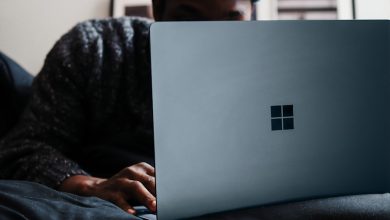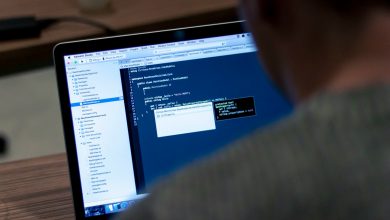
Table of Contents
Apple Security Updates
In September, Apple had a busy month in terms of security updates. The tech giant released multiple updates to rectify several vulnerabilities across its iOS and macOS devices.
iOS 16.6.1 to Fix “Zero-Click” Attacks Vulnerabilities
The first significant update was iOS 16.6.1, released on September 9, primarily to address two flaws that were already being exploited in “zero-click” attacks. The vulnerabilities, discovered by researchers at the University of Toronto's Citizen Lab, were exploited to plant spyware through malicious images in iMessages, in an attack named BLASTPASS.
iOS 17 and iOS 17. 0.1 Updates
Mid-September saw the roll-out of the major software upgrade, iOS 17, and within a few days, iOS 17.0.1 was launched. The urgency behind the release of iOS 17.0.1 lay in its purpose — fixing three prominent iPhone flaws that were being leveraged in spyware attacks. Notably, these vulnerabilities permitted an attacker to escalate privileges, often leading to unauthorized control of the user's device. iOS 16.7 was also released to apply these fixes for users of older iPhones or those who opted not to upgrade.
iOS 17.0.2 and Early iOS 17 Bugs
As the month-end approached, Apple unveiled iOS 17.0.2 to tackle some initial bugs found in iOS 17. As of the time of this report, this is the latest software version.
macOS Sonoma 14 Security Patch
In addition to the iOS updates, Apple released macOS Sonoma 14 during the same period that rectified over 60 vulnerabilities, enhancing the security of users utilizing Apple's Mac devices.
Google Android Security Updates
In response to a series of detected vulnerabilities, Google has recently released a series of security updates for its Android platform. Some of these updates fix flaws in Google's own devices, but they have also been rolled out to various other Android models including Samsung's Galaxy S-series, and the Fold and Flip series.
Fixing 33 flaws including an exploited vulnerability
In September, there was an extensive patch fixing 33 known flaws, one of which had already been exploited. The nature of these vulnerabilities varied, but overall, Google has taken essential measures to improve device security and user privacy.
CVE-2023-35674: A Notable Vulnerability in the Framework
One notable vulnerability, tracked as CVE-2023-35674, was detected in the Android framework that could allow an adversary to elevate privileges without any interaction from the user. Reports have indicated that this flaw might be under targeted exploitation, increasing the severity of the issue and the necessity for its timely remediation.
CVE-2023-5129: Libwebp Library Impacted
There is a suspected vulnerability within the applications using the libwebp library, tracked as CVE-2023-5129. It has not been clearly stated how severe the impact could be; however, Google was quick to react to this potential threat, signifying its importance for device security.
Microsoft and Mozilla Updates
Similar to Apple and Google, Microsoft and Mozilla have taken measures to address vulnerabilities within their respective systems. The companies released patches for several flaws across their software platforms, enhancing system security and user data protection.
Microsoft’s Security Updates
Microsoft has recently addressed around 65 vulnerabilities, including notable flaws tracked as CVE-2023-36761 and CVE-2023-36802. While specific details of these vulnerabilities were not outlined in the references, it's clear that this large-scale response indicates Microsoft’s commitment to maintaining robust security measures and safeguarding its users against potential risks.
Mozilla’s Fixes for Firefox Browser
Mozilla too has been active in ensuring its software's security. The company released a patch to fix ten flaws within its popular Firefox browser. Among the resolved vulnerabilities were CVE-2023-5168, CVE-2023-5170, and CVE-2023-5176. Although details about these specific vulnerabilities were not provided, patching them ensures that Firefox users continue to browse the web securely and confidently. Regular updates like these, while sometimes overlooked by users, are crucial in preventing potential exploits.
Cisco and SAP Updates
Following the trend set by tech giants such as Microsoft and Google, Cisco and SAP have also promulgated recent patches to address a series of diagnosed vulnerabilities within their platforms. These updates add a strong layer of security to the architecture of their respective systems.
Cisco Brings Fixes for Single-Sign-On Implementation
Cisco, a leading supplier of enterprise hardware, software, and services, has fixed a critical vulnerability associated with the single-sign-on implementation. This flaw had a rare top severity CVSS score of 10. It was imperative that Cisco addressed this issue to maintain the flawless operation of thousands of enterprise systems that rely on its products. The vulnerability's seriousness is underlined by the maximum CVSS score, emphasizing the urgency of implementing the fixes.
SAP’s Crucial Fixes to Address Multiple Flaws
SAP, one of the world's leading providers of enterprise application software, released updates to rectify numerous vulnerabilities, including ones tracked as CVE-2023-40622, CVE-2023-40309, and CVE-2023-42472, all having high CVSS scores. The range of errors fixed signifies the comprehensive approach taken by SAP in ensuring a secure platform for its users and customers. Although detailed information about these specific vulnerabilities was not provided in the given references, the high CVSS scores make it clear that these were serious weaknesses within the architecture of the system that needed to be addressed promptly.




